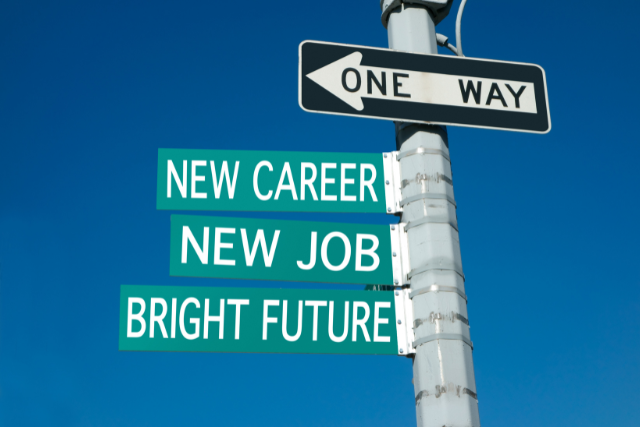The advent of artificial intelligence (AI) has catalyzed a paradigm shift in the global workforce, where technology no longer serves as a mere tool but as a defining component of almost every profession. This shift underscores a compelling idea: as AI continues to permeate industries, all jobs are increasingly becoming tech jobs. What does this transformation mean for professionals across fields, and how can society adapt to this tectonic change?
The Historical Context: The Rise of Technology in the Workforce
The integration of technology into the workplace is not a new phenomenon. The Industrial Revolution marked the first major wave of technological influence, mechanizing manual labor and transforming industries like textiles and manufacturing. The 20th century saw the rise of information technology (IT), where computers and the internet revolutionized communication, data management, and operations. However, these innovations primarily enhanced productivity rather than redefining job roles entirely.
AI has changed the game. Unlike traditional technologies, AI has the capacity to mimic cognitive processes such as learning, problem-solving, and decision-making. This capability allows AI to transform not only how tasks are performed but also the fundamental skills required to perform them. As AI becomes a core component of workplaces, it is blurring the lines between tech and non-tech jobs.
How AI is Turning All Jobs Into Tech Jobs
AI as a Universal Tool Across Industries
AI’s universality lies in its versatility. Whether analyzing data in healthcare, optimizing logistics in supply chain management, or crafting personalized customer experiences in retail, AI serves as a critical enabler. As a result, workers in traditionally “non-tech” fields increasingly rely on AI-powered tools, requiring familiarity with technology to perform even basic job functions.
For example:
- Healthcare: AI-powered diagnostic tools assist radiologists in identifying anomalies in medical imaging. Nurses use wearable devices and predictive analytics to monitor patient health, making tech proficiency an essential skill.
- Education: Teachers leverage AI-based learning platforms to personalize lessons and track student progress. The integration of AI tools demands tech literacy from educators.
- Finance: Financial analysts depend on AI algorithms to identify trends, assess risks, and generate investment insights. Accountants use AI-powered software for real-time data processing and fraud detection.
Emerging Tech-Related Skill Sets
As AI tools become standard, job descriptions increasingly require technical competencies that were once exclusive to IT roles. Skills like data analysis, machine learning basics, and coding are now sought after across industries. Even creative roles such as content writing or graphic design involve the use of AI tools like ChatGPT or Adobe Firefly, which necessitate understanding prompt engineering or tool customization.
Automation and Job Restructuring
AI-driven automation has redefined workflows, removing repetitive tasks from human responsibilities. While this creates efficiency, it also demands that workers upskill to focus on tasks involving creativity, problem-solving, and strategic thinking—skills that often require some level of technical knowledge. For example, customer service representatives now work alongside AI chatbots, requiring them to manage AI systems and address complex issues the bots cannot resolve.
Implications of AI’s Workforce Transformation
The Need for Lifelong Learning
The rise of AI has redefined what it means to be employable. To prepare for this tech-centric workforce, education systems must adapt. Schools and universities need to prioritize STEM (Science, Technology, Engineering, and Mathematics) education alongside integrating AI literacy into curricula. Vocational training programs must also emphasize digital skills to ensure that workers in trade professions can adapt to tech-enhanced tools.
Addressing the Digital Divide
The growing dependency on technology in all professions raises concerns about equity. Many individuals lack access to the tools and education necessary to thrive in an AI-driven workforce. Closing the digital divide through accessible training programs, affordable technology, and internet connectivity is essential for ensuring inclusivity.
Upskilling the Workforce
Organizations play a critical role in helping employees adapt to AI-driven changes. Many companies have initiated upskilling programs to teach workers how to interact with AI systems, interpret data, and make tech-informed decisions. Governments and private entities must collaborate to provide accessible training programs, particularly for vulnerable populations at risk of job displacement.
Ethical and Psychological Considerations
AI’s growing presence in the workplace introduces ethical dilemmas, such as algorithmic bias, data privacy, and the displacement of low-skill jobs. Additionally, the psychological impact of adapting to rapid technological changes can lead to anxiety and resistance among workers. Addressing these challenges requires proactive policies and supportive workplace cultures.
The Future of Work: What Lies Ahead
As AI continues to evolve, the nature of work will shift toward greater human-AI collaboration. The skills of the future will blend technical proficiency with emotional intelligence and adaptability. Governments, educational institutions, and businesses must collaborate to ensure that this transformation is equitable and sustainable.
The rise of AI also presents opportunities for innovation. For example, new roles are emerging in fields like AI ethics, human-machine interaction, and data curation. These opportunities highlight the potential for AI to create jobs rather than simply replace them.
The idea that all jobs are becoming tech jobs reflects the profound impact of AI on the modern workforce. This transformation brings challenges, such as the need for continuous learning and addressing the digital divide, but it also offers opportunities for growth and innovation. By embracing AI as a collaborative tool and investing in education and equity, society can navigate this shift and build a more inclusive, dynamic, and prosperous future.
As we stand on the cusp of this new era, the question is not whether AI will reshape jobs, but how we can prepare ourselves to thrive in this tech-centric world.




